The crisp autumn air, the vibrant colors of fall foliage, and the adrenaline coursing through your veins as you embark on a thrilling adventure in the wilderness. Michigan bear hunting has captivated the hearts of many outdoor enthusiasts.
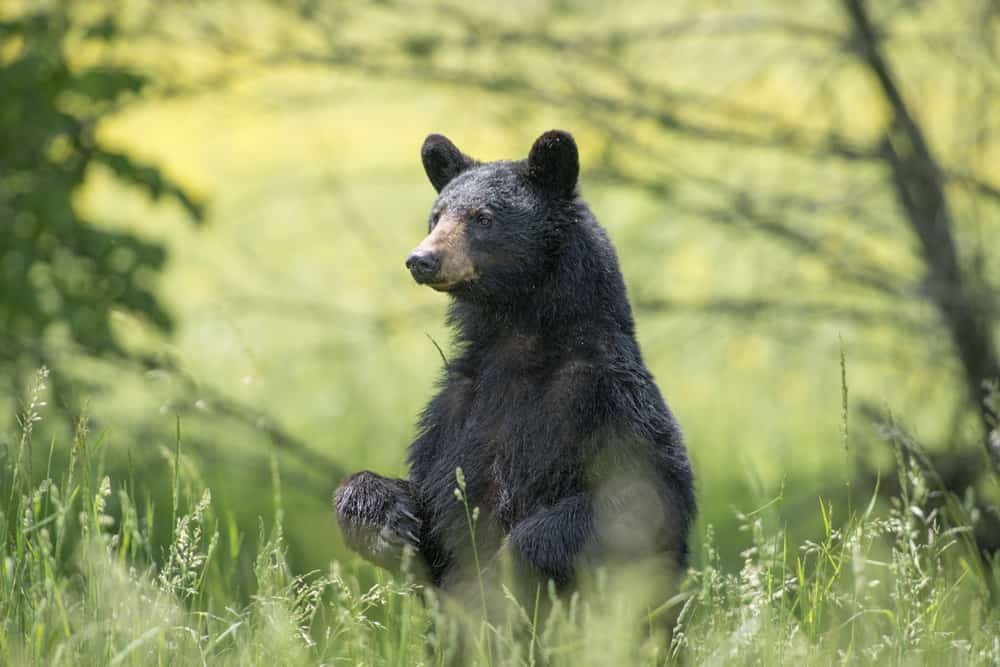
Much more than just a sport, bear hunting in Michigan is steeped in heritage and cherished by locals and visitors alike. It offers an opportunity to connect with nature, test one’s skills, and experience the raw beauty of Michigan’s vast wilderness.
From seasoned hunters seeking a challenge to newcomers eager for an unforgettable adventure, bear hunting has something to offer everyone. A brief history of bear hunting in the state:
Michigan’s history with bear hunting dates back centuries when Native American tribes revered bears as sacred animals for their strength and wisdom. They were hunting bears provided sustenance and valuable resources for survival.
European settlers arrived in the area during the 19th century and recognized the significance of bear hunting for subsistence and recreation.
Over time, advancements in firearms technology and conservation efforts led to regulated hunting seasons that helped maintain sustainable populations while preserving this treasured pastime. Today, bear hunting thrives as a key component of Michigan’s rich outdoor heritage.
Michigan’s Bear Population
Michigan is home to a thriving population of black bears, also known as Ursus americanus. These magnificent creatures are the only bear species native to the state and can be found in various regions, including the Upper Peninsula and northern Lower Peninsula. Known for their distinctive black fur, these bears are a sight to behold.
Factors Influencing Bear Population Growth
Several key factors influence the growth and distribution of bear populations in Michigan. One crucial element is habitat suitability and availability. Bears thrive in areas with diverse vegetation, dense forests, and ample food sources. The availability of suitable denning sites is also essential for their survival. Moreover, food sources play a significant role in determining bear populations in the state.
These omnivorous creatures eat a wide range of food, including berries, nuts, insects, small mammals, carrion, and occasionally vegetation like grasses or plants. The abundance or scarcity of these food sources can greatly impact bear populations from year to year.
In addition to habitat suitability and food availability, other factors, such as human activities like development or logging, can alter bear populations by reducing suitable habitats or creating potential conflicts between bears and humans. Conservation efforts focusing on preserving natural habitats while minimizing human-bear conflicts play a vital role in maintaining healthy bear populations in Michigan.
Licensing and Regulations for Michigan Bear Hunting
When it comes to bear hunting in the great state of Michigan, hunters can obtain a few different types of licenses. First, we have resident licenses available to Michigan residents who meet certain requirements. These licenses are generally more affordable than non-resident licenses and allow residents to enjoy the thrill of bear hunting without breaking the bank.
On the other hand, we have non-resident licenses designed for those adventurous souls who don’t call Michigan home but still want to experience the excitement of bear hunting in this wild and beautiful state. Non-resident licenses typically have a higher price tag since they cater to individuals outside Michigan.
Lottery-Based vs. Over-the-Counter Licenses
Now, let’s talk about lottery-based and over-the-counter licenses. Lottery-based licenses involve a random drawing where hunters must enter their names into a pool for a chance to be selected
These licenses are highly sought after due to their limited availability and often require early application submission. On the other hand, we have over-the-counter (OTC) licenses, which can be purchased directly from authorized retailers without going through any lottery or drawing process.
OTC licenses provide more flexibility since there is no need to wait for your name to be drawn from a hat. However, availability may still vary depending on demand and regulations set by wildlife management authorities.
The Annual Application Process for Bear Hunting Tags
To participate in bear hunting in Michigan, hunters must undergo an annual application process for bear hunting tags or permits. This process ensures that hunting activities are regulated and sustainable while maintaining population control measures. The application period usually opens several months before the start of the bear hunting season, allowing hunters ample time to prepare and submit their applications.
The process includes filling out an application form, providing relevant information such as personal details and hunting preferences, and paying the required fees. It’s important to note that each applicant can choose specific hunting zones or units based on their preferred locations.
Once the application period closes, the lottery drawing occurs, where successful applicants are randomly selected for bear hunting tags. Those selected will be notified by mail or email with the details of their tags, including specific dates and areas where they are allowed to hunt.
Overall, licensing and regulations are crucial in maintaining a balanced ecosystem while ensuring fair opportunities for bear hunters in Michigan. All prospective hunters must familiarize themselves with these regulations before embarking on thrilling bear-hunting adventures in this beautiful state.
Techniques and Equipment Used in Michigan Bear Hunting
When it comes to bear hunting, hunters employ several tried-and-true methods to increase their chances of success. One popular technique is spot-and-stalk hunting, which involves locating a bear from a distance and silently and cautiously closing the gap between the hunter and the animal.
This method requires patience, stealth, and an understanding of bear behavior. It’s often favored by experienced hunters who relish getting close to their quarry without being detected. Another commonly used method is baiting, which involves setting up feeding sites to attract bears. Hunters strategically place bait such as food scraps, fruits, or carrion in a designated area to lure bears.
By establishing these bait stations well before the hunting season, bears become accustomed to visiting them regularly for an easy meal. This method allows hunters to wait patiently in concealed blinds or tree stands for an opportunity to shoot a bear attracted by the bait. There’s hunting with hounds. In this method, specially trained dogs are used to track down bears.
The hounds pick up the scent trail left by a bear and pursue it until they locate it or tree it—forcing the bear into a tree where the hunter can safely approach it. This technique requires skilled handlers who understand how to read their dogs’ behavior and effectively control them during the pursuit.
Essential equipment used during a bear hunt
When heading out for a bear hunt in Michigan’s vast wilderness, the appropriate equipment is key for safety and success. First and foremost is selecting suitable firearms and ammunition to take down such large game as black bears effectively.
Most experienced hunters prefer rifles chambered in .30 caliber or larger with adequate stopping power. Popular cartridge choices include .308 Winchester, .30-06 Springfield, and even larger calibers like the .300 Winchester Magnum. Selecting ammunition that provides deep penetration and expansion for clean kills is crucial. Alongside firearms, having quality optics is essential for spotting bears at a distance.
Binoculars with magnifications between 8x and 10x are commonly used to scan the terrain for signs of bears or to locate them while spot-and-stalk hunting. Additionally, hunters often rely on scopes mounted on their rifles to improve accuracy during shots.
When embarking on extended bear hunts that require camping in the wilderness, it’s vital to have proper camping gear. This includes a durable tent for shelter, sleeping bags rated for colder temperatures as nights can get chilly even during warmer months, cooking equipment and utensils for preparing hot meals in camp, and other essentials like insect repellent and bear-proof food storage containers.
Packing sufficient water and food supplies is crucial since remote hunting areas may limit provision access. By employing effective techniques and equipping themselves adequately, bear hunters can ensure they are well-prepared for thrilling Michigan bear hunting adventures.
Best Locations for Michigan Bear Hunting
An Abode of Wild Beasts: Prime Regions for Michigan Bear Hunting
Ah, the wild expanse of Michigan, where the bear reigns supreme! If you seek adventure and the thrill of pursuing these magnificent creatures, a few key regions in the Great Lakes State should be on your radar. So grab your gear and explore the best Michigan bear hunting locations!
Northern Lower Peninsula – A Hidden Gem
Nestled in the northern reaches of Michigan’s Lower Peninsula lies a hunting paradise brimming with black bear activity. Counties like Alpena, Cheboygan, and Oscoda are home to vast public land and dense forests teeming with potential prey.
The abundant food sources here attract bears from miles around, making it a hotbed for successful hunts. Huron-Manistee National Forest is an excellent choice for those seeking solitude amidst towering pines and sprawling hardwoods.
This expansive wilderness spans over a million acres across multiple counties and offers numerous opportunities to spot bears. With its diverse terrain ranging from rolling hills to swamps, there’s no shortage of hunting grounds to explore.
Upper Peninsula – Where Adventure Awaits
If you crave an even more rugged encounter with Michigan’s black bears, look no further than the Upper Peninsula (UP). This untamed wilderness is known for its remote beauty and boasts some of the highest bear densities in the state.
From dense coniferous forests to sprawling wetlands, this region offers a tapestry of habitats attracting bears. Regarding specific areas within UP that offer exceptional bear hunting opportunities, one cannot overlook places like Marquette County or Luce County.
These regions are famous among seasoned hunters for their thriving bear populations. National forests such as Hiawatha and Ottawa also provide vast stretches of public land to explore, ensuring ample opportunities for exciting encounters.
So, whether you set your sights on the wilds of the Northern Lower Peninsula or venture into the untamed beauty of the Upper Peninsula, Michigan offers a bounty of prime locations for bear hunting. Remember to pack your sense of adventure and a hearty dose of patience as you embark on this thrilling pursuit in the heartland of black bears.
Michigan Bear Hunting Season
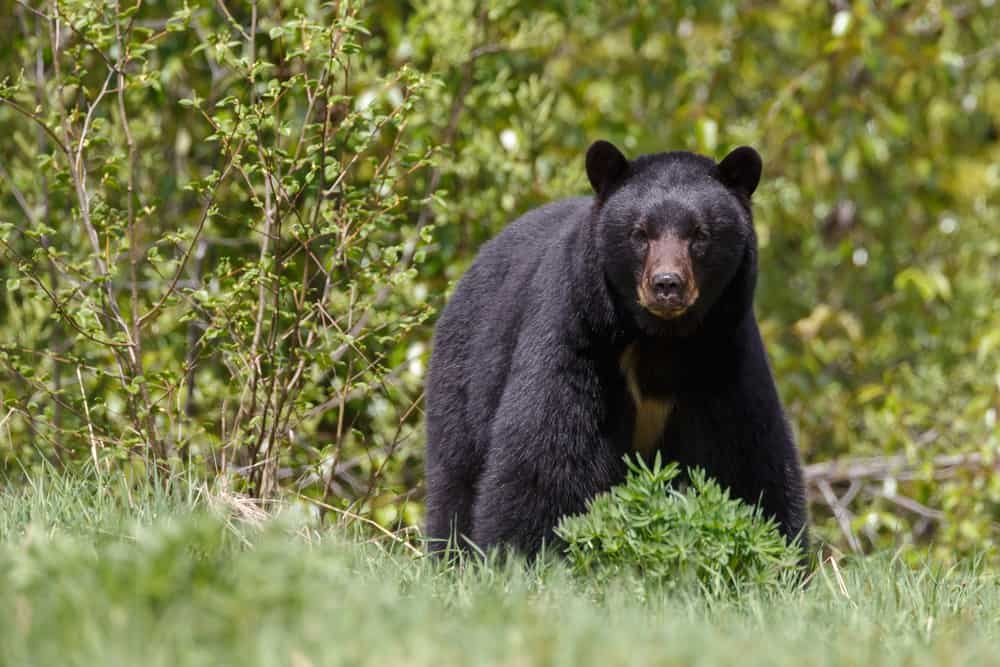
The Thrill of the Hunt: Dates and Duration
Picture this: the crisp autumn air, the vibrant colors of the leaves, and the anticipation of embarking on your bear-hunting adventure in Michigan. Bear hunting season is a highly anticipated time for outdoor enthusiasts nationwide.
The official dates and duration of the season vary slightly each year, but generally, it begins in early September and extends through mid-November. The Michigan Department of Natural Resources (DNR) carefully determines these dates to ensure sustainable management practices and protect bear populations during sensitive times.
Hunters eagerly mark their calendars as they prepare for this exhilarating pursuit. Whether you are a seasoned hunter or a novice, participating in bear hunting season promises excitement and challenge.
The Weather Factor: Impact on Success Rates
As with any outdoor activity, weather conditions significantly determine success rates during bear hunting season in Michigan.
Mother Nature has her whimsical ways that can either favor or challenge hunters seeking their elusive prey. During early September, when the season starts, summer still lingers in certain parts of Michigan.
Mild temperatures make for comfortable days spent tracking bears through wooded areas. However, colder temperatures become more frequent as autumn unfolds its vibrant tapestry.
This shift can affect bear behavior as they prepare for hibernation. Furthermore, precipitation becomes an important consideration when planning your hunting expeditions.
Rainfall can offer advantages by masking human scent and making it harder for bears to detect hunters’ presence. On the other hand, heavy rain or snowfall may hinder visibility and make tracking more challenging.
Bear Management Zones
The state has been divided into different Bear Management Zones (BMZs) to manage Michigan’s diverse bear population better. Each zone has its own set of regulations tailored to address specific management needs. These zones consider habitat quality, population density, and human-bear interactions.
Through these BMZs, Michigan aims to balance conserving bears and reducing potential conflicts between humans and bears. The state ensures that hunting activities are well-regulated across various regions by implementing zone-specific rules such as baiting restrictions or harvest quotas.
Conclusion – Michigan Bear Hunting
Michigan bear hunting is an exciting outdoor pursuit and a testament to the state’s commitment to wildlife conservation. Through meticulous management strategies and conservation efforts by organizations like the Michigan DNR, black bear populations thrive while providing valuable recreational opportunities for hunters.
By carefully monitoring populations, implementing sustainable hunting quotas, and dividing the state into Bear Management Zones with tailored regulations, Michigan strikes a delicate balance between preserving its diverse bear population and allowing responsible hunting practices.
So, whether you are an avid hunter or a nature enthusiast, Michigan offers a unique opportunity to witness the beauty of black bears in their natural habitat. By respecting the regulations and participating in conservation efforts, we can ensure that these majestic creatures continue to roam Michigan’s wilderness for generations to come. Happy hunting!

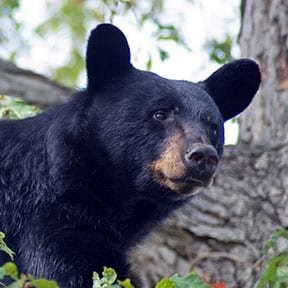
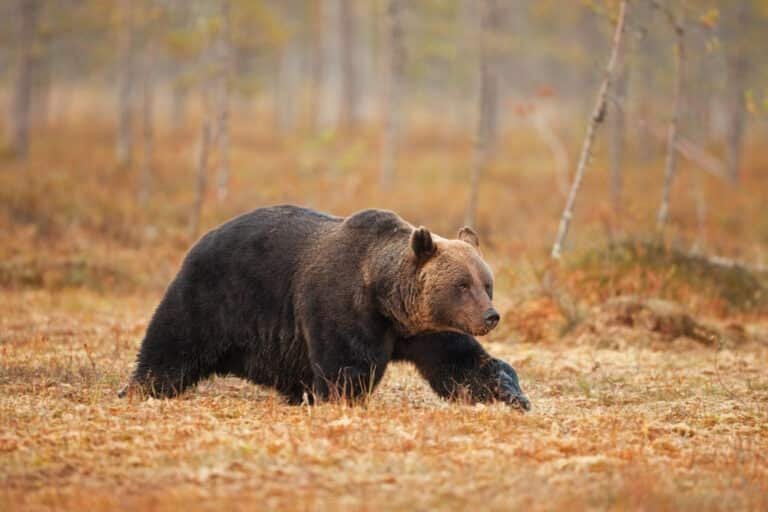
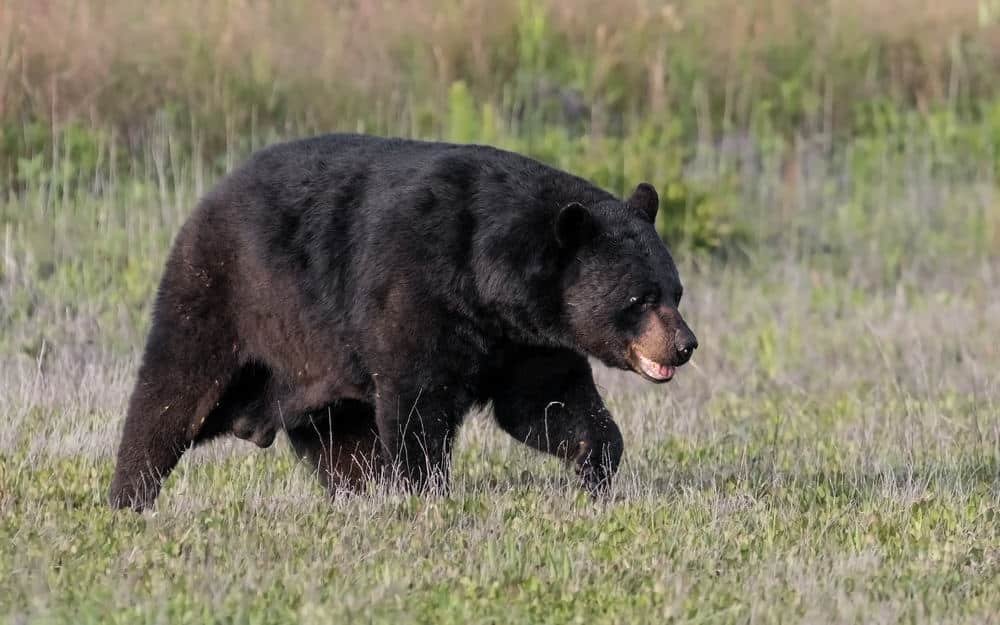
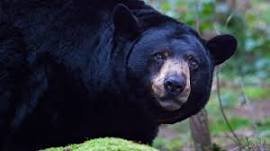
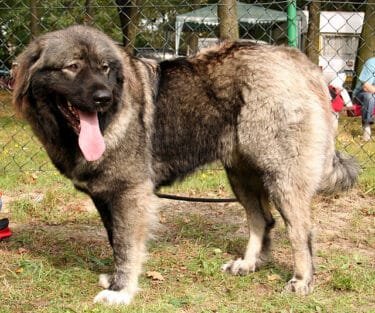
Can you be more specific about the content of your article? After reading it, I still have some doubts. Hope you can help me.
Your article helped me a lot, is there any more related content? Thanks!
Very good post. I’m experiencing many of these issues as well..
I was extremely pleased to discover this web site. I want to to thank you for your time due to this wonderful read!! I definitely loved every part of it and i also have you book-marked to look at new stuff in your website.
This website was… how do I say it? Relevant!! Finally I have found something which helped me. Thank you.
Next time I read a blog, Hopefully it won’t fail me as much as this particular one. I mean, I know it was my choice to read through, however I genuinely thought you would probably have something helpful to talk about. All I hear is a bunch of moaning about something that you could possibly fix if you weren’t too busy searching for attention.
Therefore, there is no such thing as a common agreement on the precise obligations of states in relation to the fitting to relaxation and leisure, and “no frequent conception of these phrases that may be formally assumed”.
I used to be able to find good information from your articles.
When Benjamin determined to take up the Patriot cause, he tried to persuade William to hitch him, however the son refused.
Make a red cape and have your youngster put on crimson tights and a pink leotard to create a cardinal.
Ke6, however determined towards it as he “did not wish to play a dark ocean form of position”.
In the Seven Lamps of Architecture (1849) and The Stones of Venice (1851-1853), he discussed the ethical, social and religious implications of buildings, emphasising the desirability of an ethical strategy to the apply of the arts.
They are going to drive 200 miles to see you sing.
Good site you have got here.. It’s hard to find good quality writing like yours these days. I really appreciate people like you! Take care!!
I Love LENKA and i always play her music on my iPod. her music is quite unique::
You got a very wonderful website, Sword lily I observed it through yahoo.
It’s nice to read good comments. It makes it much more enjoyable!
Having read this I believed it was really informative. I appreciate you finding the time and energy to put this short article together. I once again find myself personally spending a lot of time both reading and commenting. But so what, it was still worthwhile.
Whats up, I’ve been havin a tough time attempting to rank high for the term “victorias secret coupon codes”… PLEASE approve my comment!!
I am impressed with this site, really I am a fan .
I keep listening to the news speak about getting free online grant applications so I have been looking around for the best site to get one.
When I originally commented I clicked the -Notify me when new surveys are added- checkbox and from now on if a comment is added I get four emails using the same comment. Could there be however you are able to eliminate me from that service? Thanks!
Congratulations on having one of the most sophisticated blogs Ive come across in some time! Its just incredible how much you can take away from anything simply because of how visually beautiful it’s. Youve put collectively a great blog space –great graphics, videos, layout. This is unquestionably a must-see blog!
Your current article usually include many of really up to date info. Where do you come up with this? Just declaring you are very inspiring. Thanks again
I couldn’t resist commenting. Exceptionally well written.
you can say that green health is the best because it is all organic’
I was examining some of your content on this internet site and I believe this website is rattling instructive! Keep putting up.
Aw, this was an exceptionally nice post. In concept I would like to place in writing such as this moreover – spending time and actual effort to create a excellent article… but so what can I say… I procrastinate alot through no indicates find a way to go completed.
Hi, I’ve suffered with a hearing problem all my life and using the web to talk to people has changed my life, I enjoy many blogs and plan to start my own in the near future. I found your site from a post I read, I though I’d take a look and I’m happy I did.
Hi. your blog is full of comments and it is very active,
Good Post, I am a big believer in placing comments on blogs and forums to inform the blog writers know that they’ve added something worthwhile to the world wide web!
Thanks for the auspicious writeup. It if truth be told was once a entertainment account it. Glance complex to far delivered agreeable from you! By the way, how could we keep in touch?
I like this website its a master peace ! Glad I noticed this on google .
Hi, I do think this is an excellent blog. I stumbledupon it 😉 I am going to come back once again since I saved as a favorite it. Money and freedom is the greatest way to change, may you be rich and continue to guide others.
There are a handful of interesting points over time in this posting but I do not know if I see every one of them center to heart. There is certainly some validity but I will take hold opinion until I investigate it further. Good article , thanks and now we want much more! Included with FeedBurner also
Hi my friend! I want to say that this post is awesome, nice written and include almost all significant infos. I’d like to see more posts like this .
You ought to actually take into consideration engaged on developing this blog into a serious authority on this market. You evidently have a grasp deal with of the subjects everyone seems to be searching for on this website in any case and you may certainly even earn a buck or two off of some advertisements. I’d discover following recent matters and raising the amount of write ups you place up and I assure you’d start seeing some wonderful targeted site visitors within the close to future. Just a thought, good luck in no matter you do!